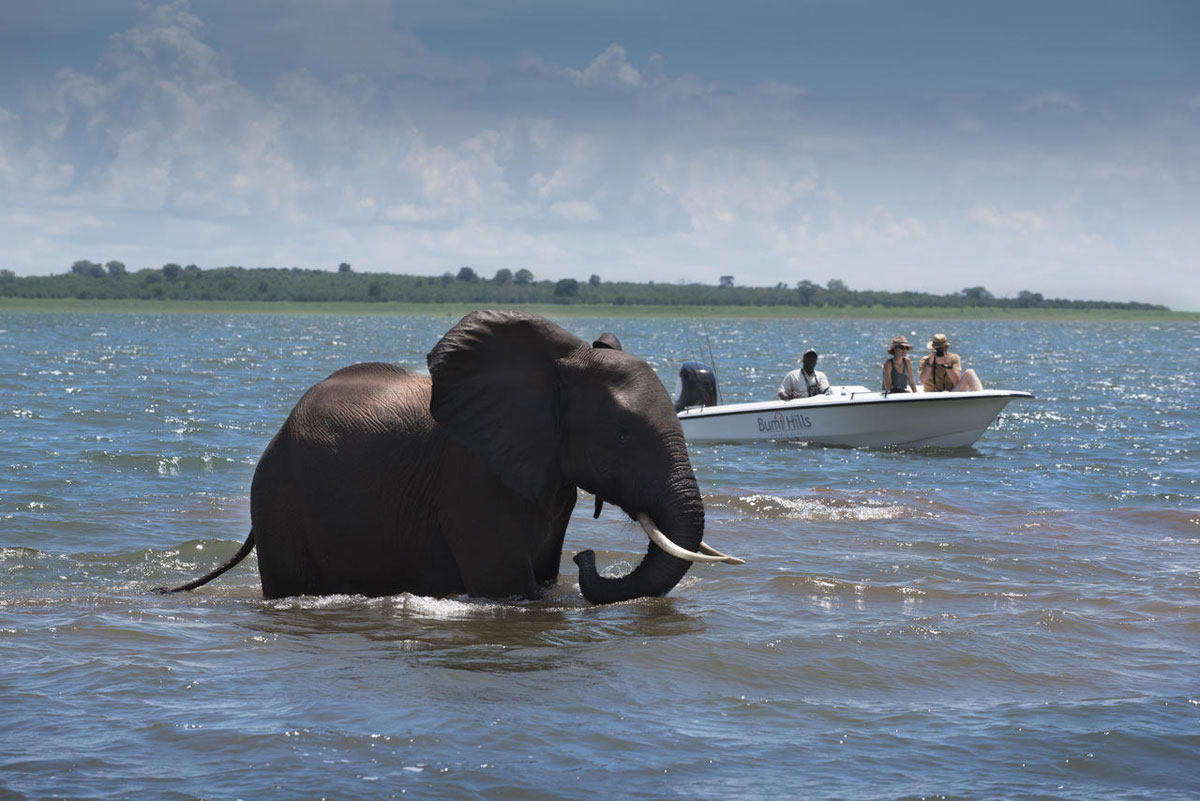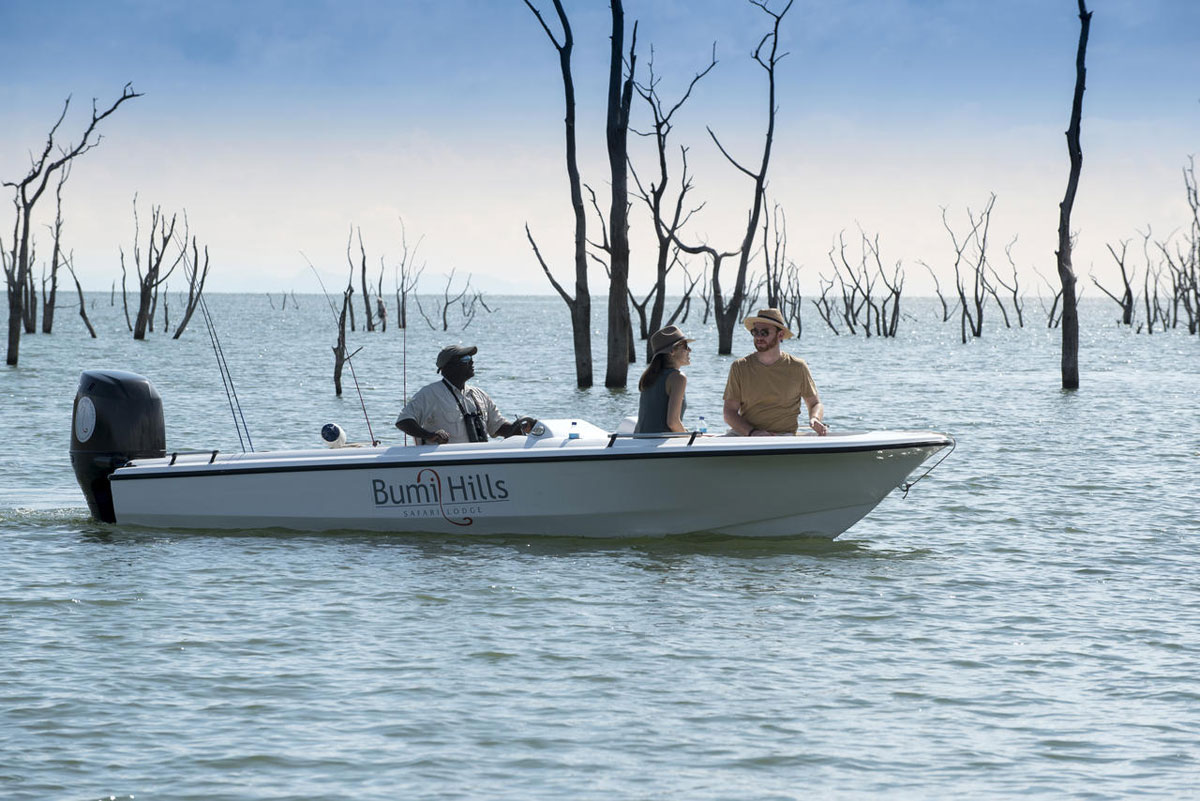Zimbabwe is the custodian of a number of game-rich national parks and conservancies. The country is a mecca for safaris, and also happens to be home to Victoria Falls, one of the natural seven wonders of the world. Zimbabwe is a largely underrated safari destination, but it most certainly should be earmarked as a prime region for a safari. Zimbabwe has endured a rather turbulent political history that has influenced the potential visitor’s decision to choose alternate countries for a safari experience. Zim, as it’s affectionately known, has many significant wildlife areas which include Mana Pools National Park, Lake Kariba, and Hwange National Park.
There are four permanent pools of water that have their source in the mighty Zambezi River, and these pools are located deep within the national park. The national park is located in the lower Zambezi region, and the area is known for its canoe safaris and walking trails. Abundant trees form a canopy over many areas, which provides the much-needed shade during the uncomfortable summer heat. It also provides shaded areas for groups enjoying guided walks through the scenic landscape. This is a prime destination for predator viewing and high concentrations of big game can be found with ease. We’re not surprised that Mana Pools National Park was given a World Heritage Site status.
Our accommodation choice: Kanga Bush Camp is situated in a remote section of the national park on a private concession. It overlooks the Kanga Pan which attracts a wealth of wildlife.

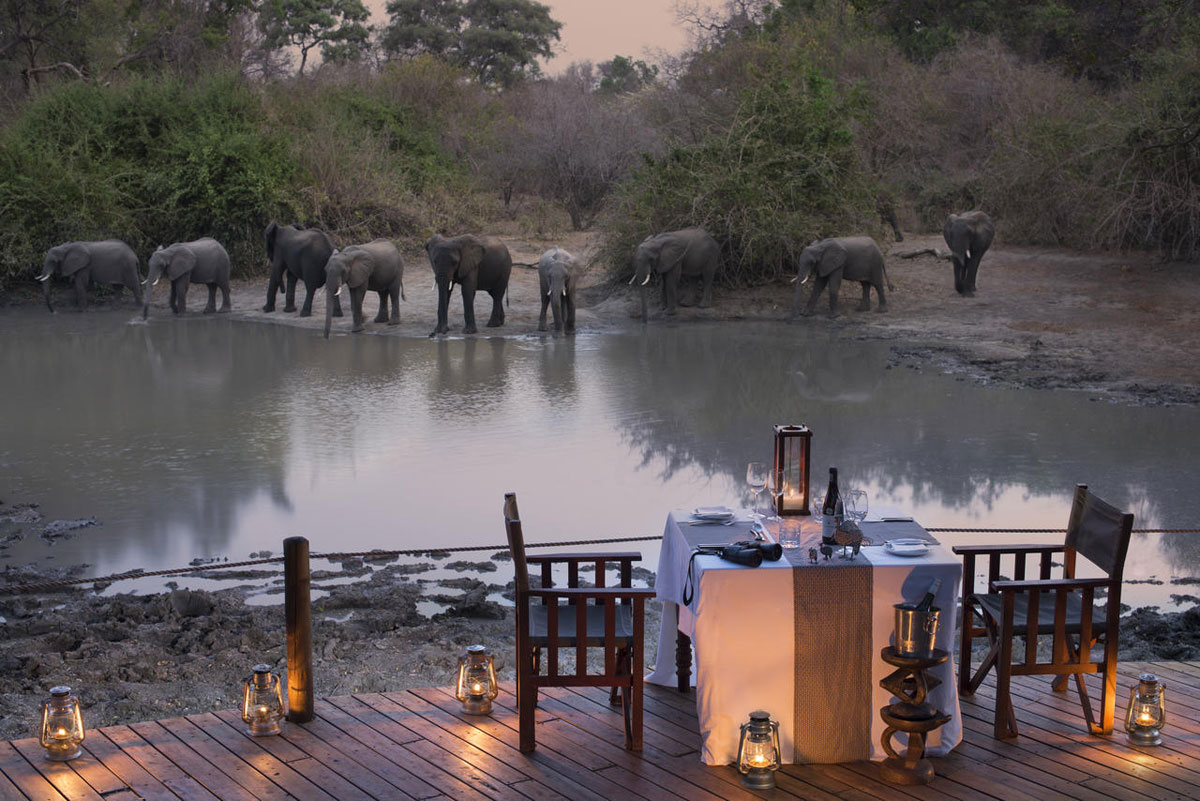
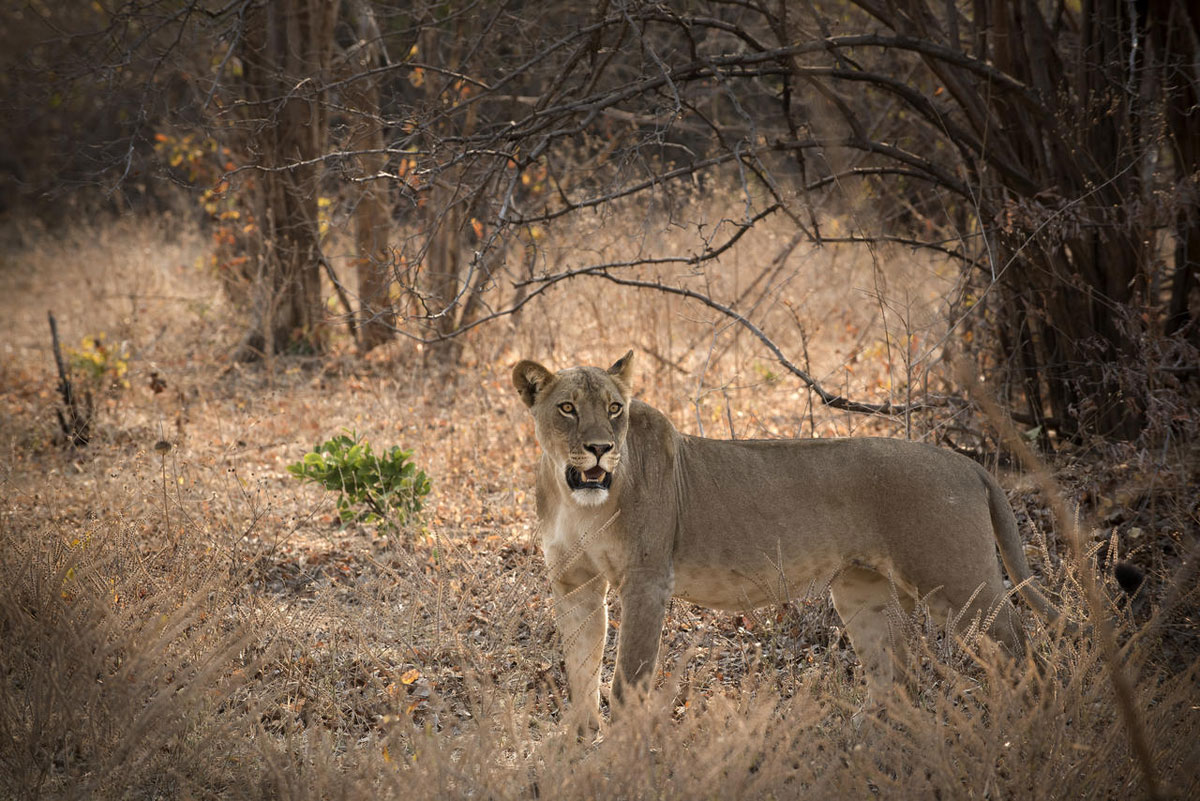
Hwange National Park borders Botswana and is the largest park in Zimbabwe. Sitting on the fringe of the Kalahari desert, Hwange enjoys a similar climate to the more arid desert region. The landscape comprises mopane forests, open plains dotted with palm trees and teak woodlands. A truly diverse and unique biome with remarkable species diversity. There are over 100 species of mammal and 400 species of bird, and over 450 lions within the park. Hwange’s unique selling point? It is home to the highest concentration of elephants in Africa! Prowling predators are in abundance, with high records of African wild dog sightings.
Our accommodation choice: Somalisa Camp is ideally located in wildlife heaven, and offers abundant sightings of buffalo and elephant. There are exceptional views of the floodplain directly in front of the camp.

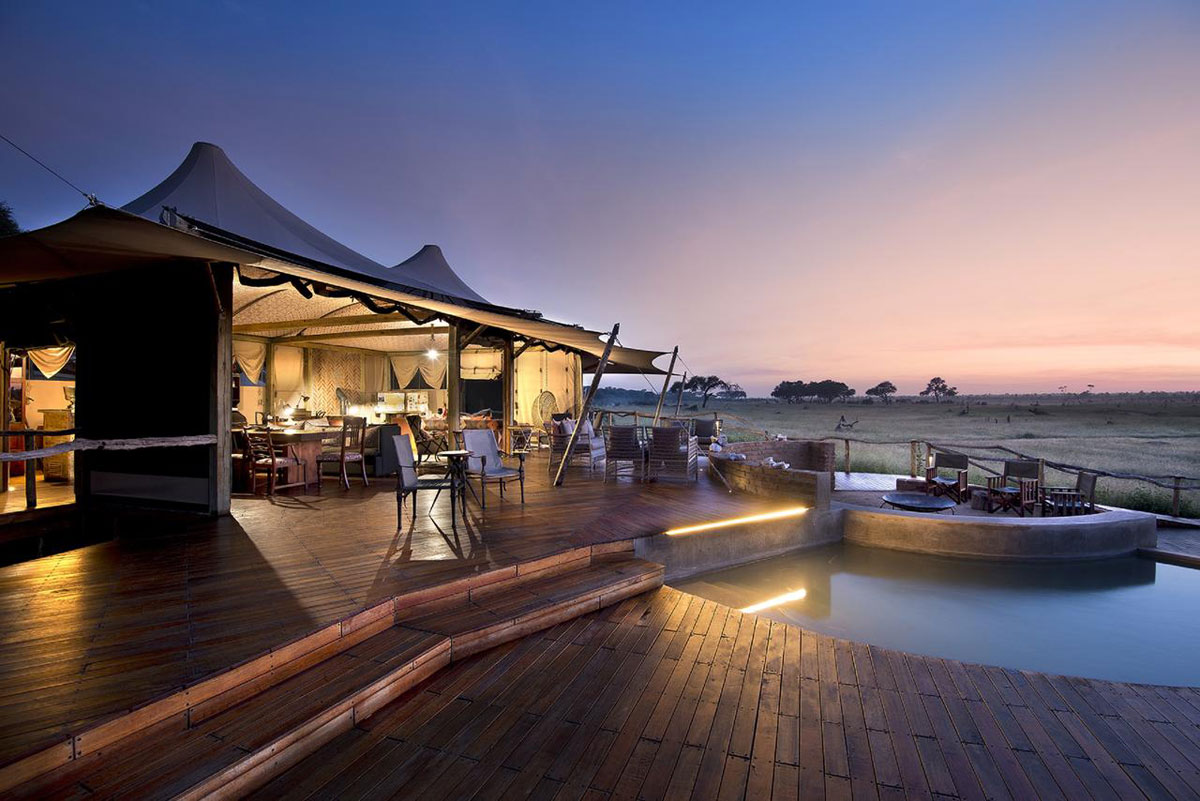
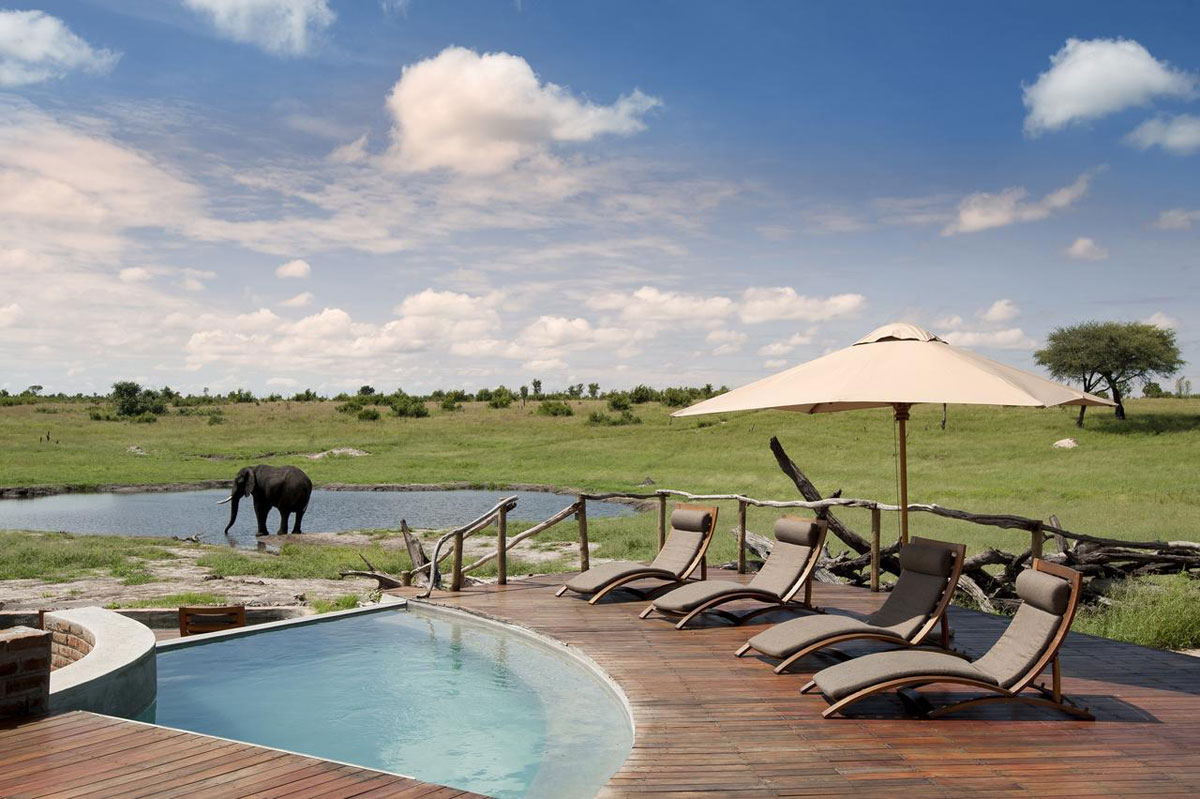

Several islands are dotted throughout the man-made Lake Kariba, the largest artificial lake in the world. These islands are home to an abundant game that fled to the islands during the floods, and now each island has its own diverse array of wildlife. Large waders, fish eagles and other birds patrol the shorelines of the islands, making it a quintessential birding destination. Lake Kariba forms the border between Zambia and Zimbabwe and is well-known for its houseboat safaris, floating chalets and fishing expeditions. One of the most remarkable sights is witnessing the elephant herds swimming between the islands. Lake Kariba is not ideal for swimming – there are bloats of hippo and floats of crocodile hiding beneath the waters of the lake.
Our accommodation choice: Bumi Hills Safari Lodge is located in one of the most popular lodges on Lake Kariba and offers commanding views of the escarpment. This luxury lodge has an indulgent jacuzzi and infinity pool.
